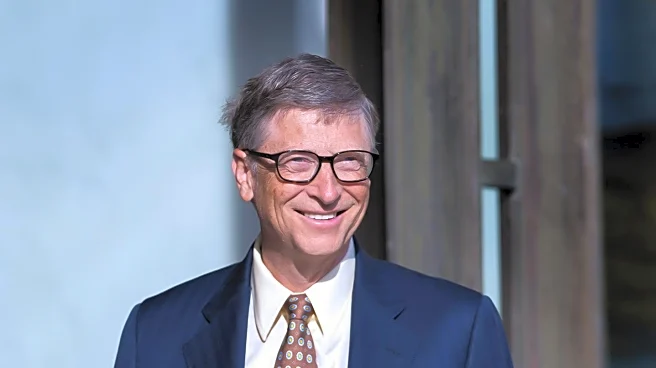What's Happening?
Bill Gates, the co-founder of Microsoft and a prominent philanthropist, has expressed his commitment to supporting research into Alzheimer's disease. In an exclusive interview with CBS News chief medical correspondent Dr. Jon LaPook, Gates discussed his personal
connection to the disease, which affected his father. Gates is backing efforts to advance scientific understanding and develop effective treatments for Alzheimer's, a condition that impacts millions of individuals and their families worldwide. His involvement underscores the importance of private sector contributions to medical research, particularly in areas where public funding may be limited.
Why It's Important?
Alzheimer's disease is a major public health issue, with significant implications for healthcare systems and families across the United States. Gates' support for Alzheimer's research highlights the role of private philanthropy in addressing complex health challenges. By investing in scientific research, Gates aims to accelerate the development of treatments that could alleviate the burden of Alzheimer's on patients and caregivers. This initiative could lead to breakthroughs that improve quality of life and reduce healthcare costs associated with long-term care. The involvement of influential figures like Gates can also raise awareness and drive public interest in supporting medical research.
What's Next?
The continued investment in Alzheimer's research by figures like Bill Gates may inspire other philanthropists and organizations to contribute to this cause. As research progresses, there may be opportunities for collaboration between private and public sectors to enhance funding and resources. The development of new treatments could lead to clinical trials and potential regulatory approvals, offering hope to those affected by Alzheimer's. Stakeholders, including healthcare providers and advocacy groups, will likely monitor advancements closely, advocating for policies that support research and patient care.
Beyond the Headlines
Gates' involvement in Alzheimer's research also raises ethical considerations regarding the allocation of resources in medical research. The focus on diseases with significant social impact may influence funding priorities and research agendas. Additionally, the integration of technology and data analytics in Alzheimer's research could lead to innovative approaches in understanding and treating the disease. This development may also prompt discussions about privacy and data security in medical research.

















